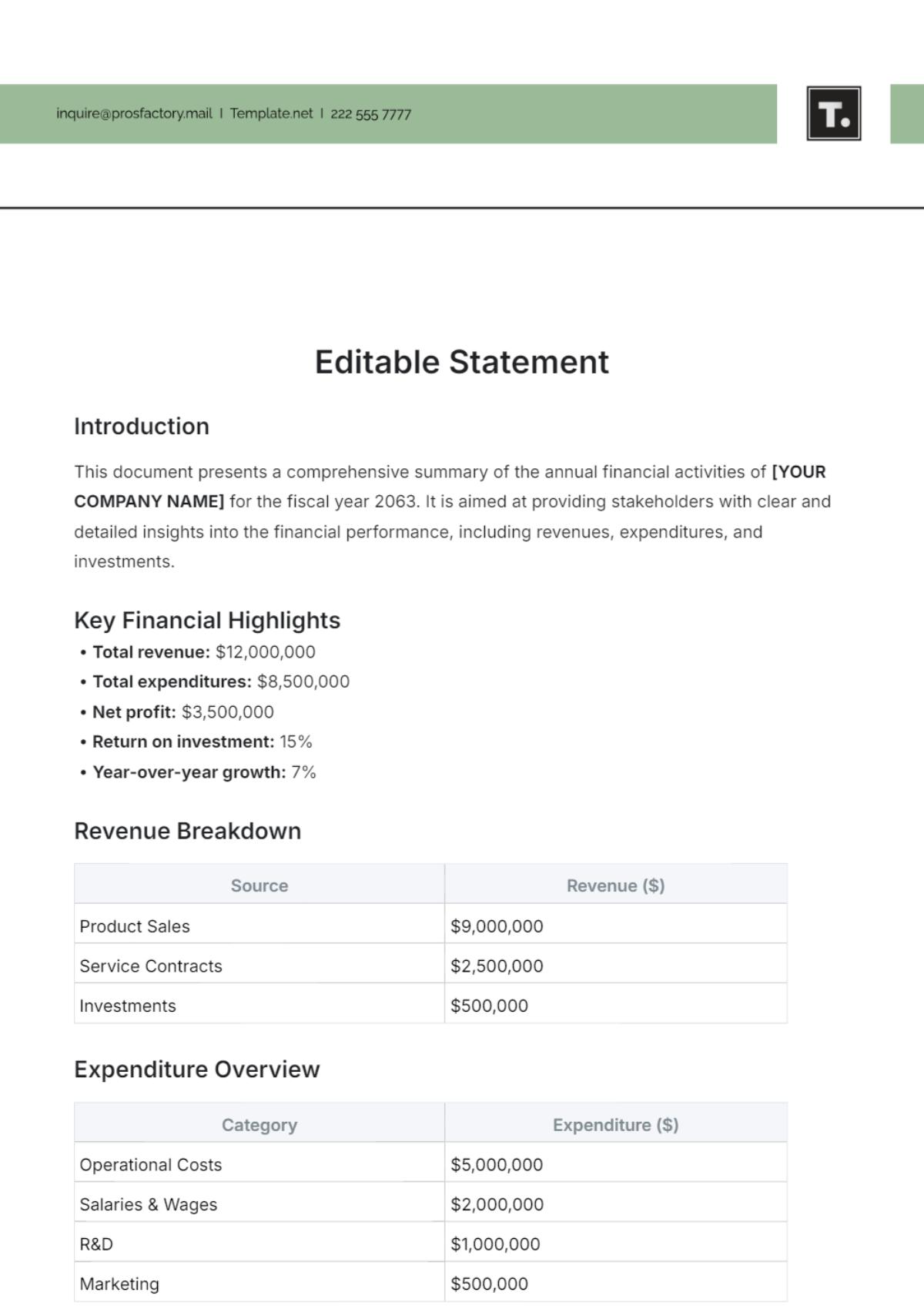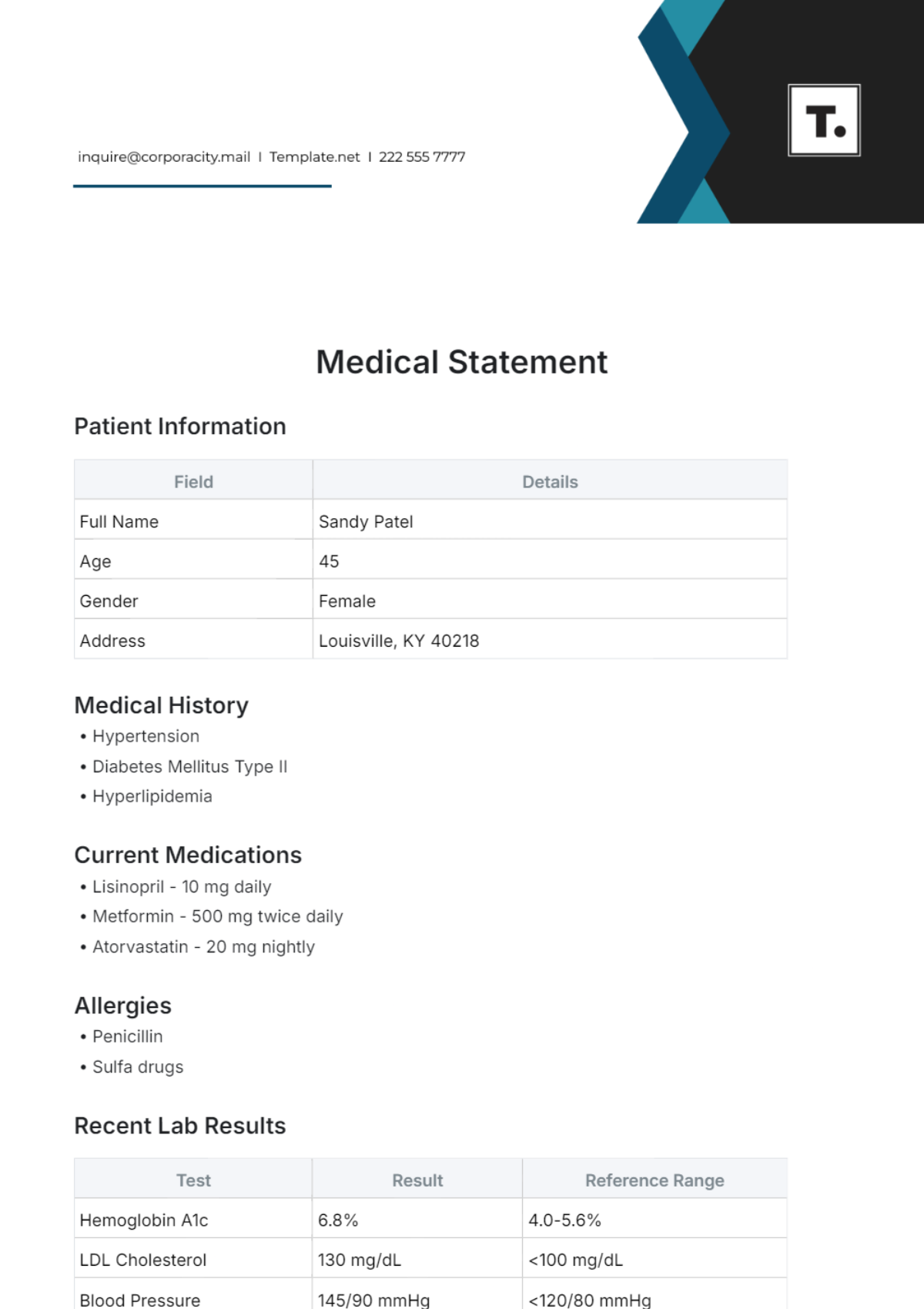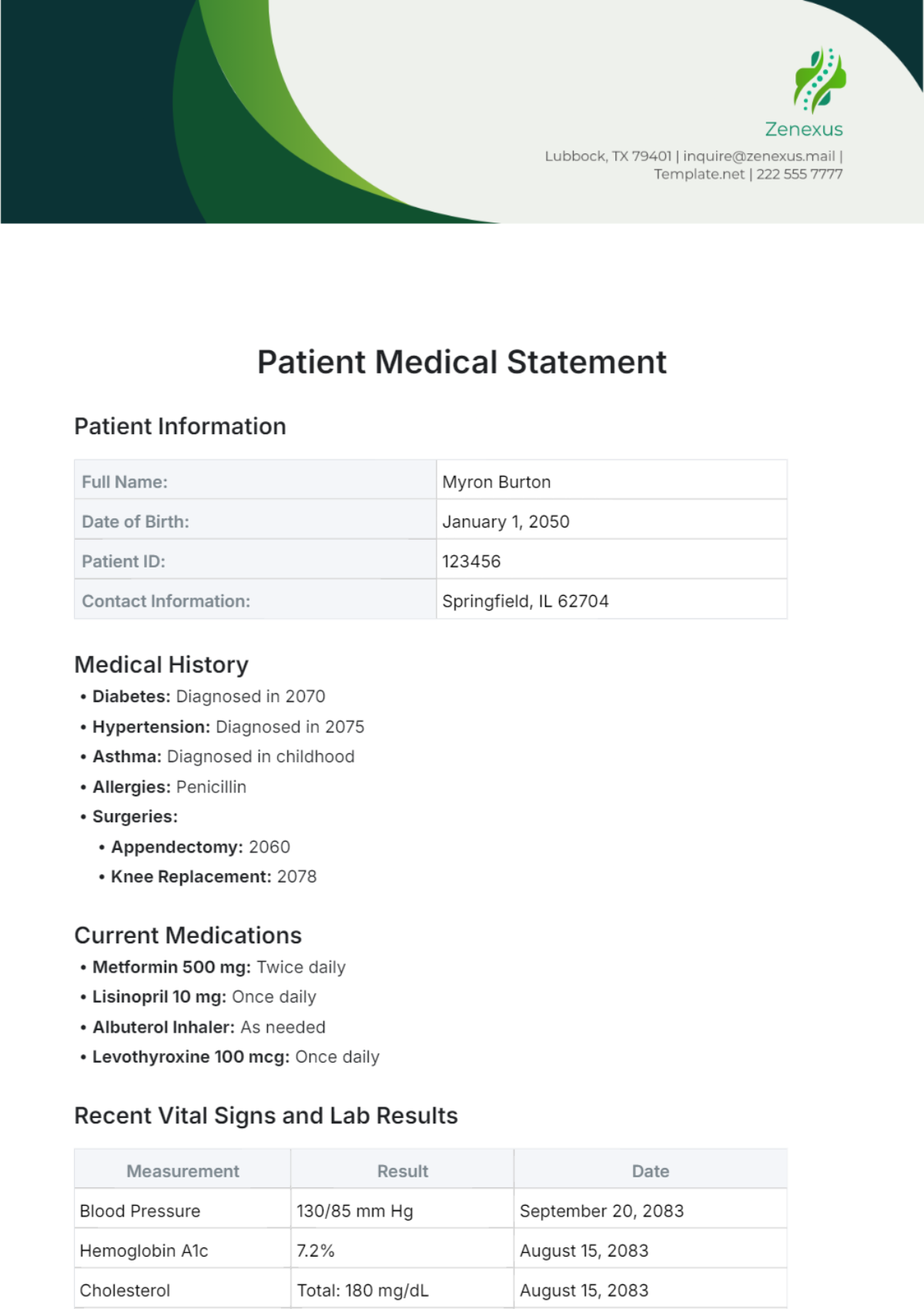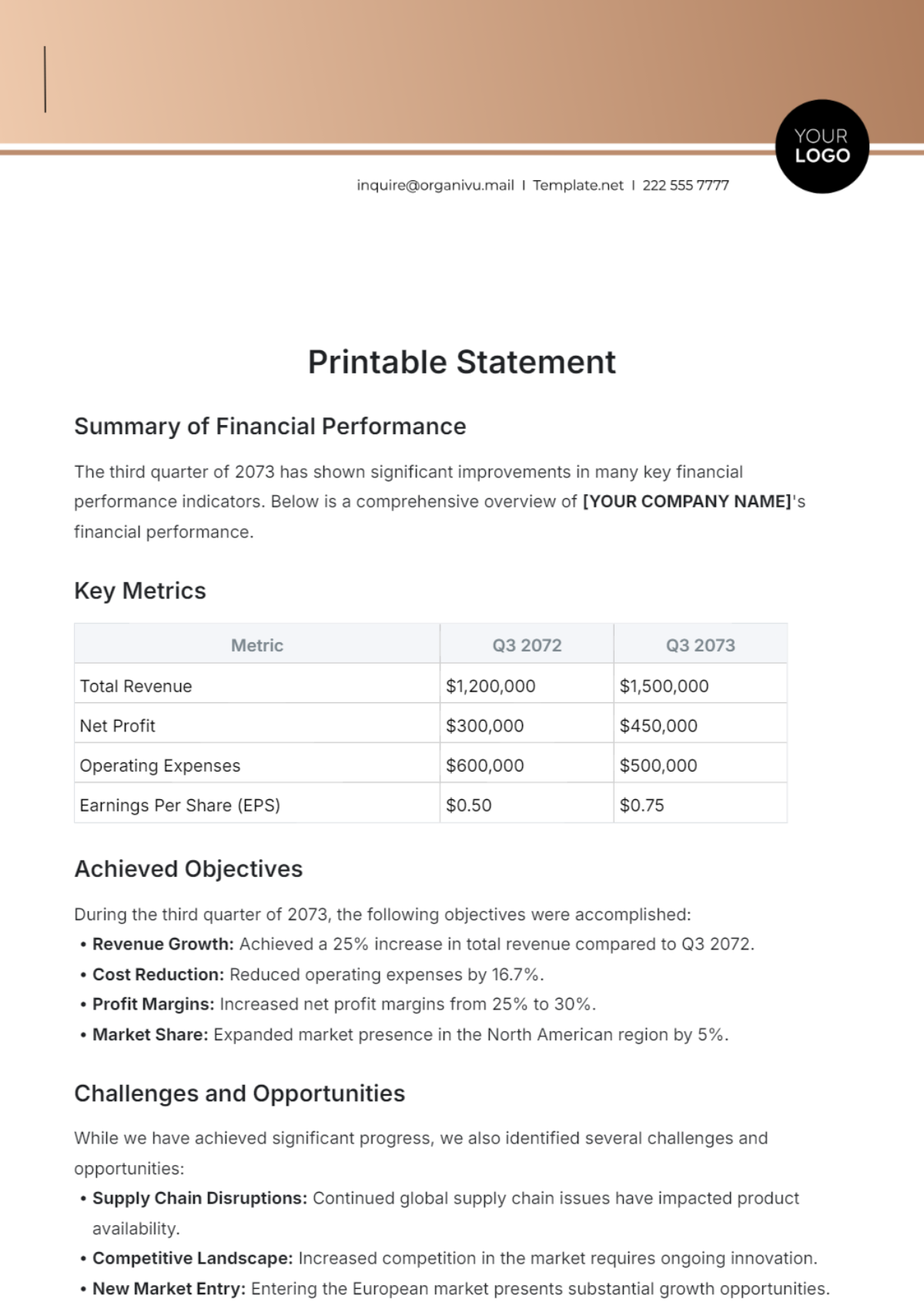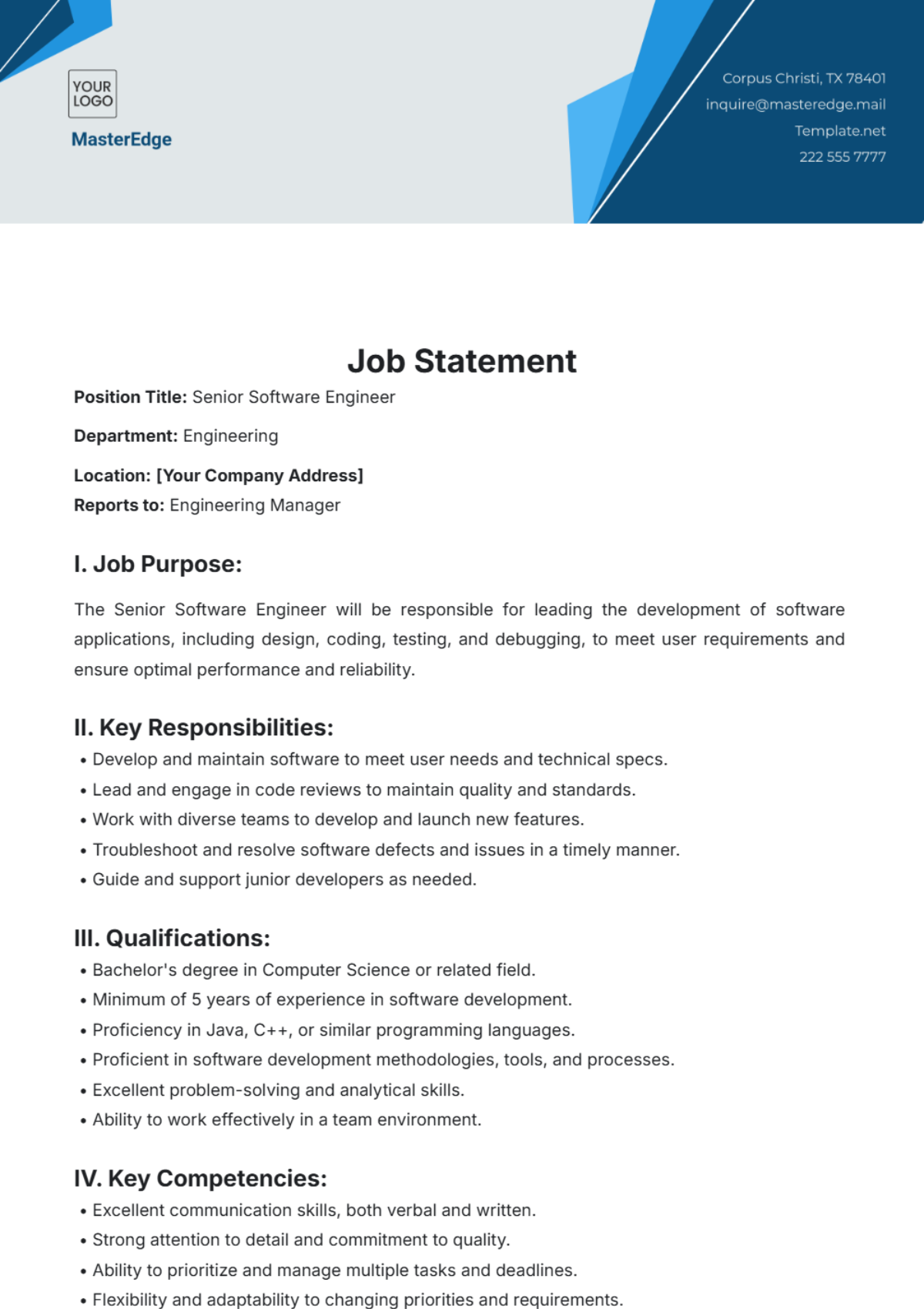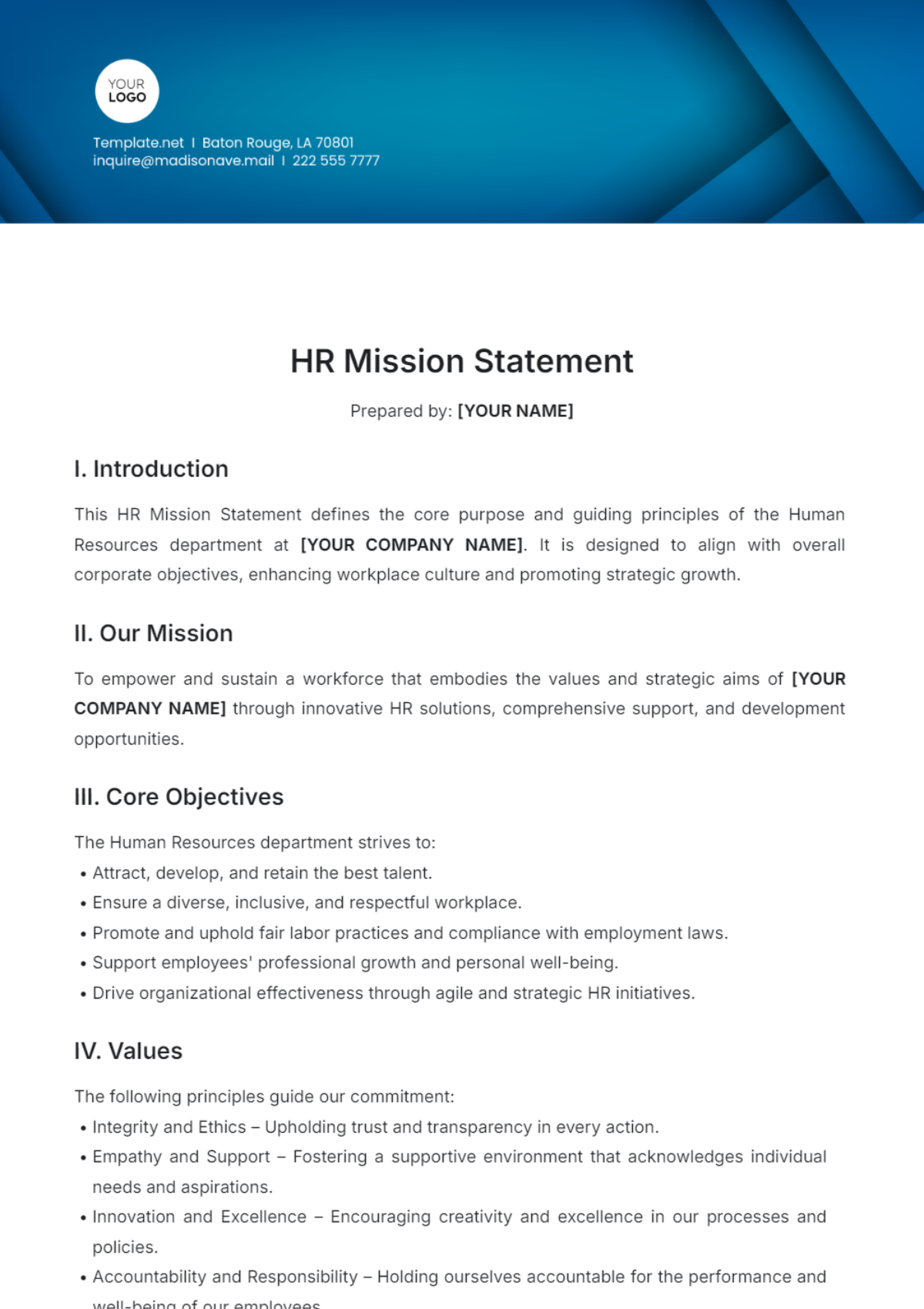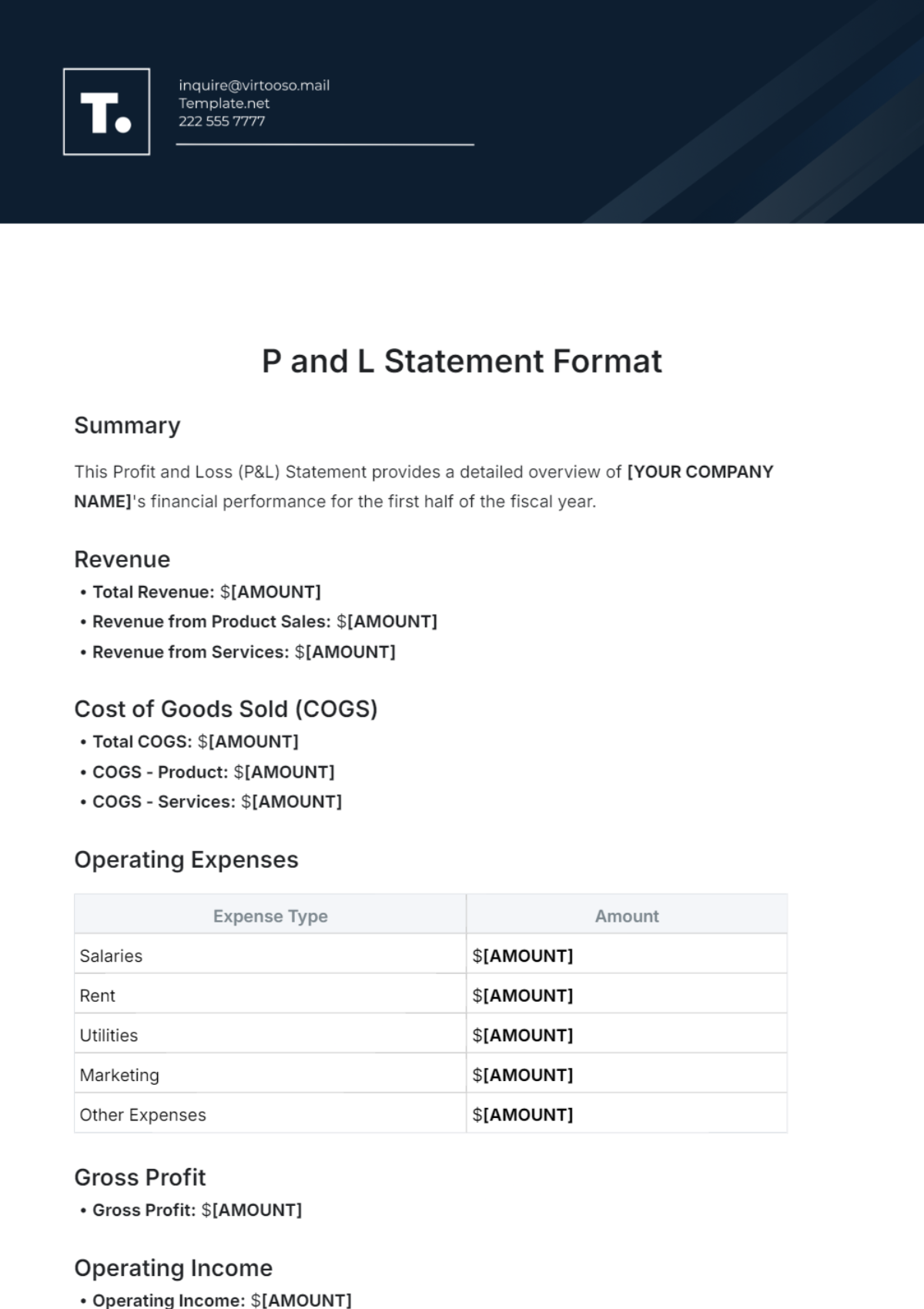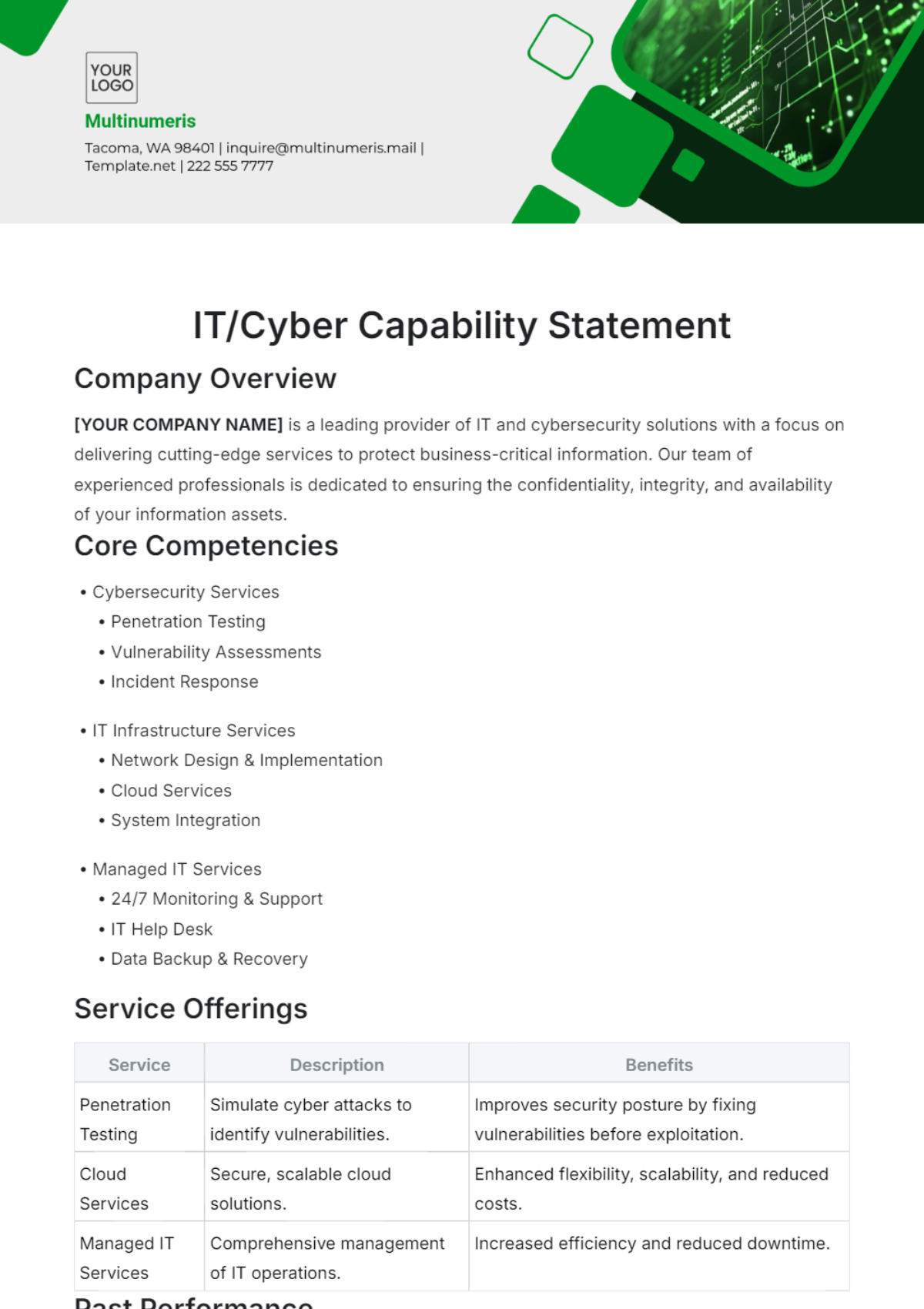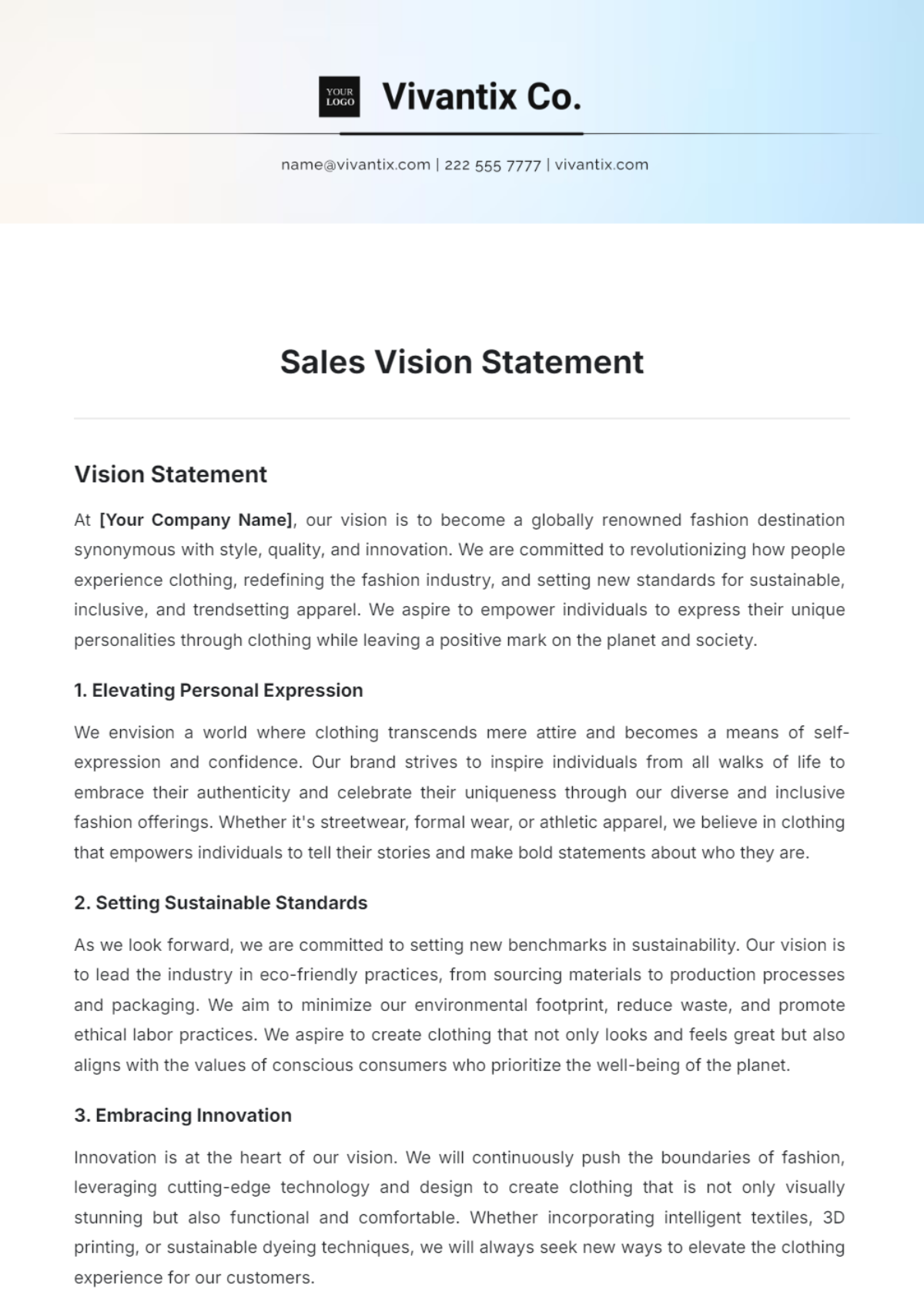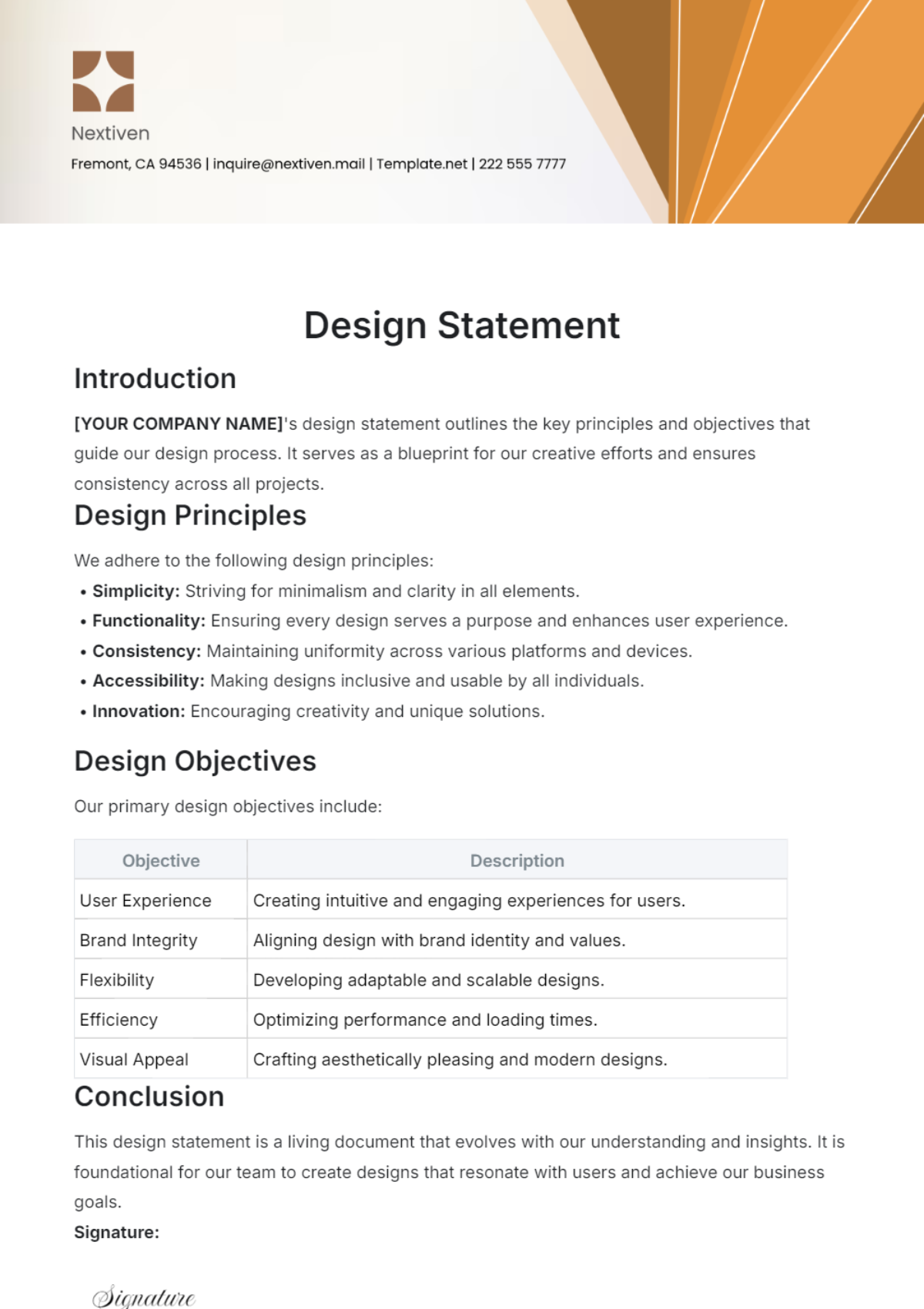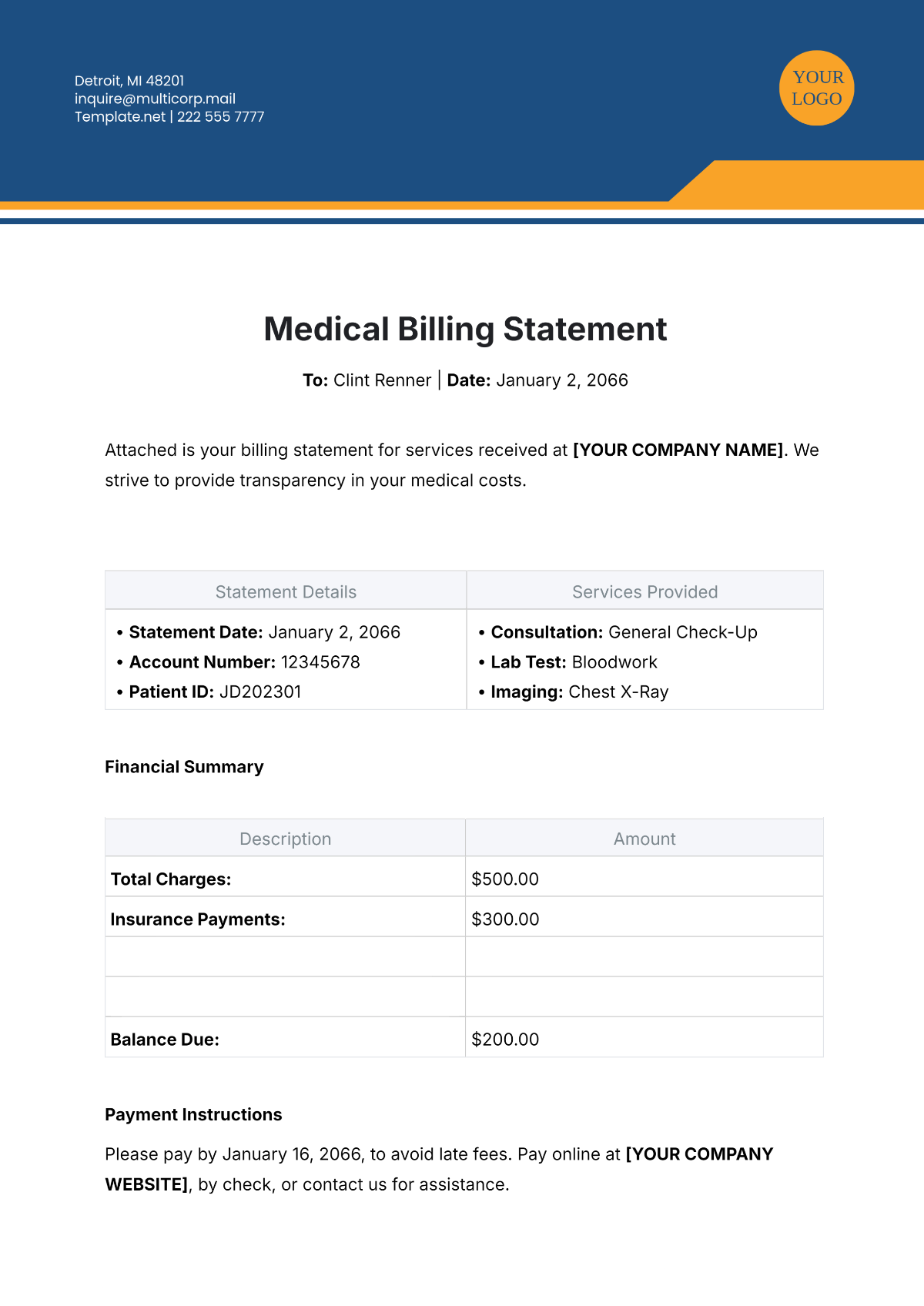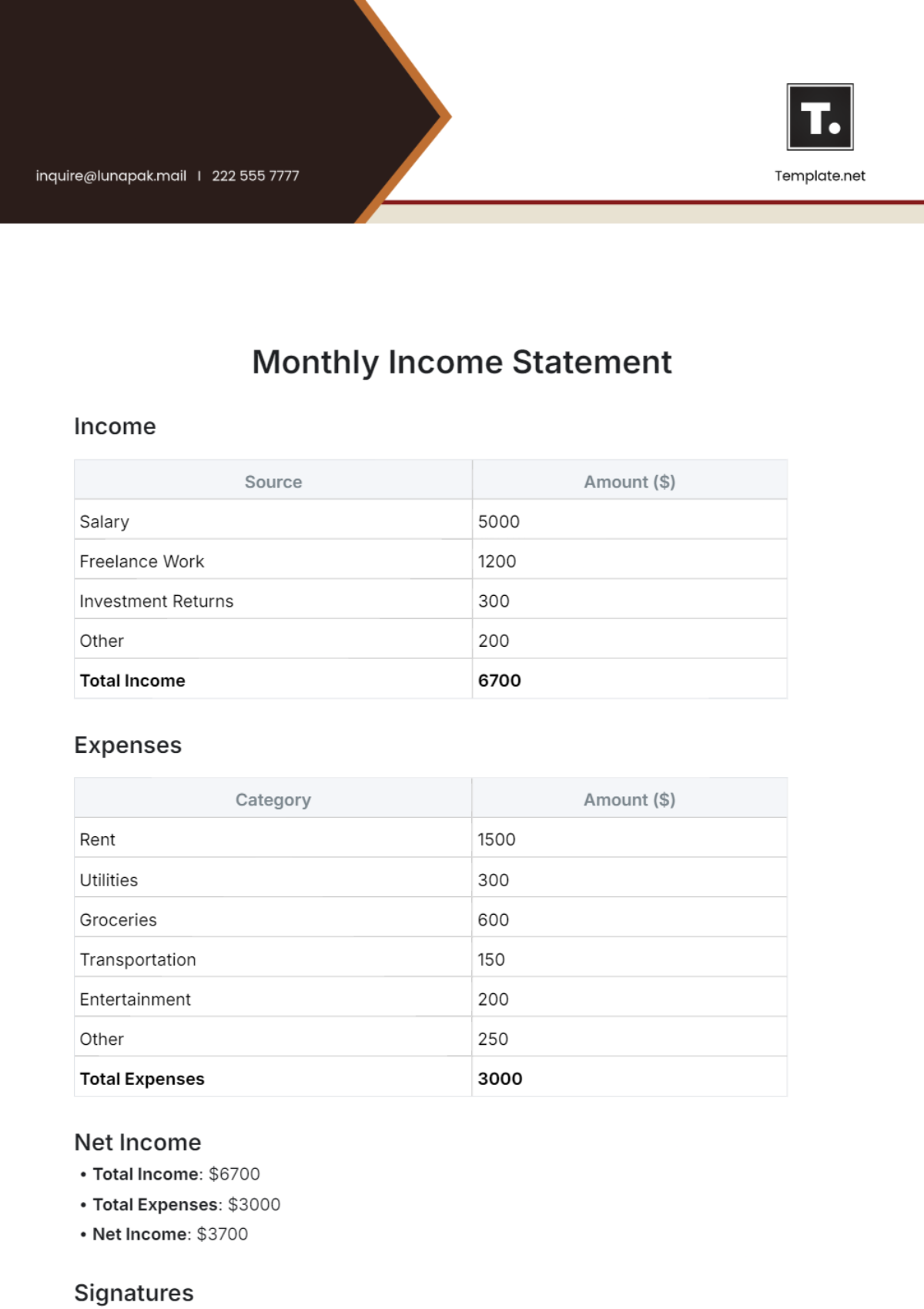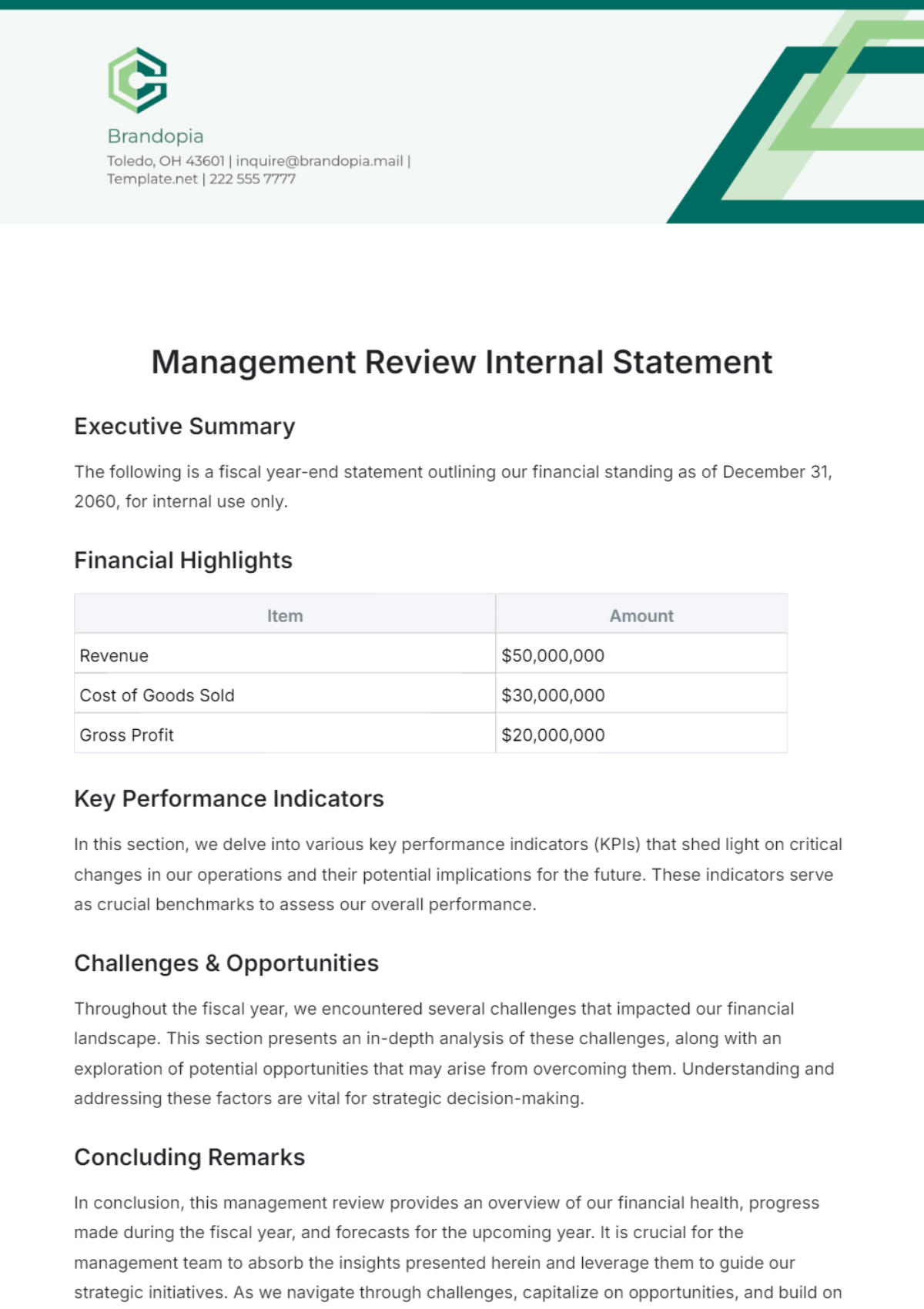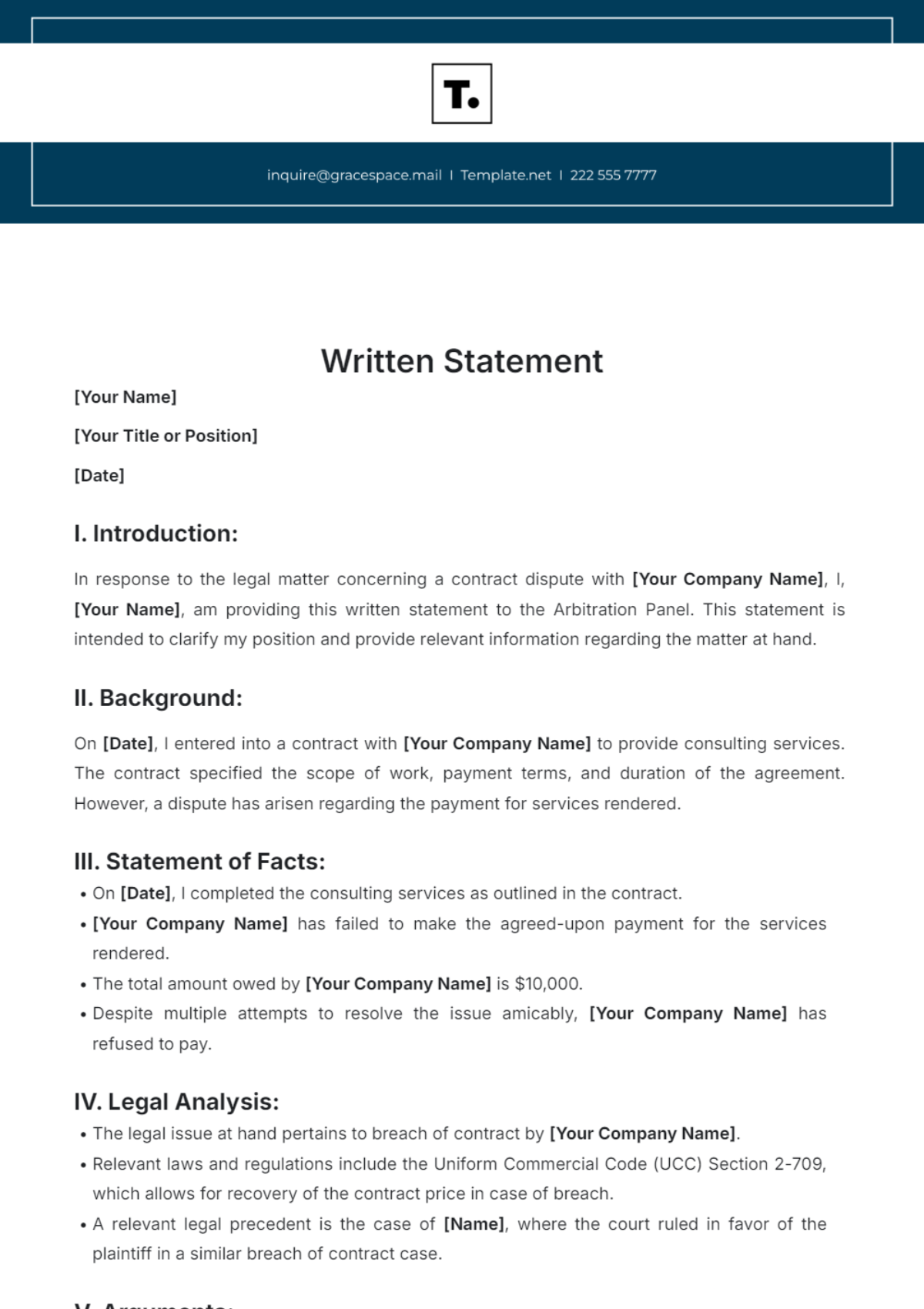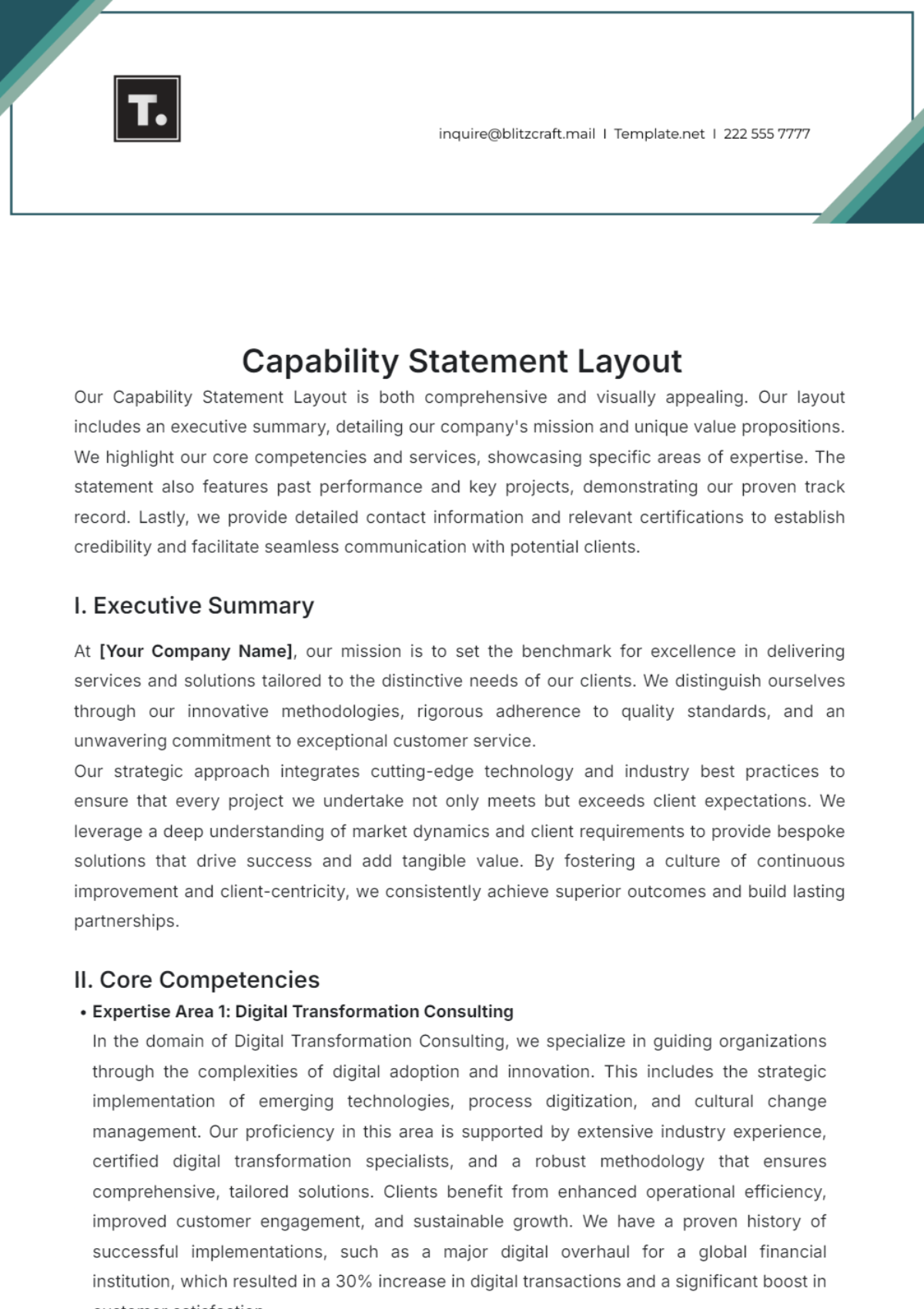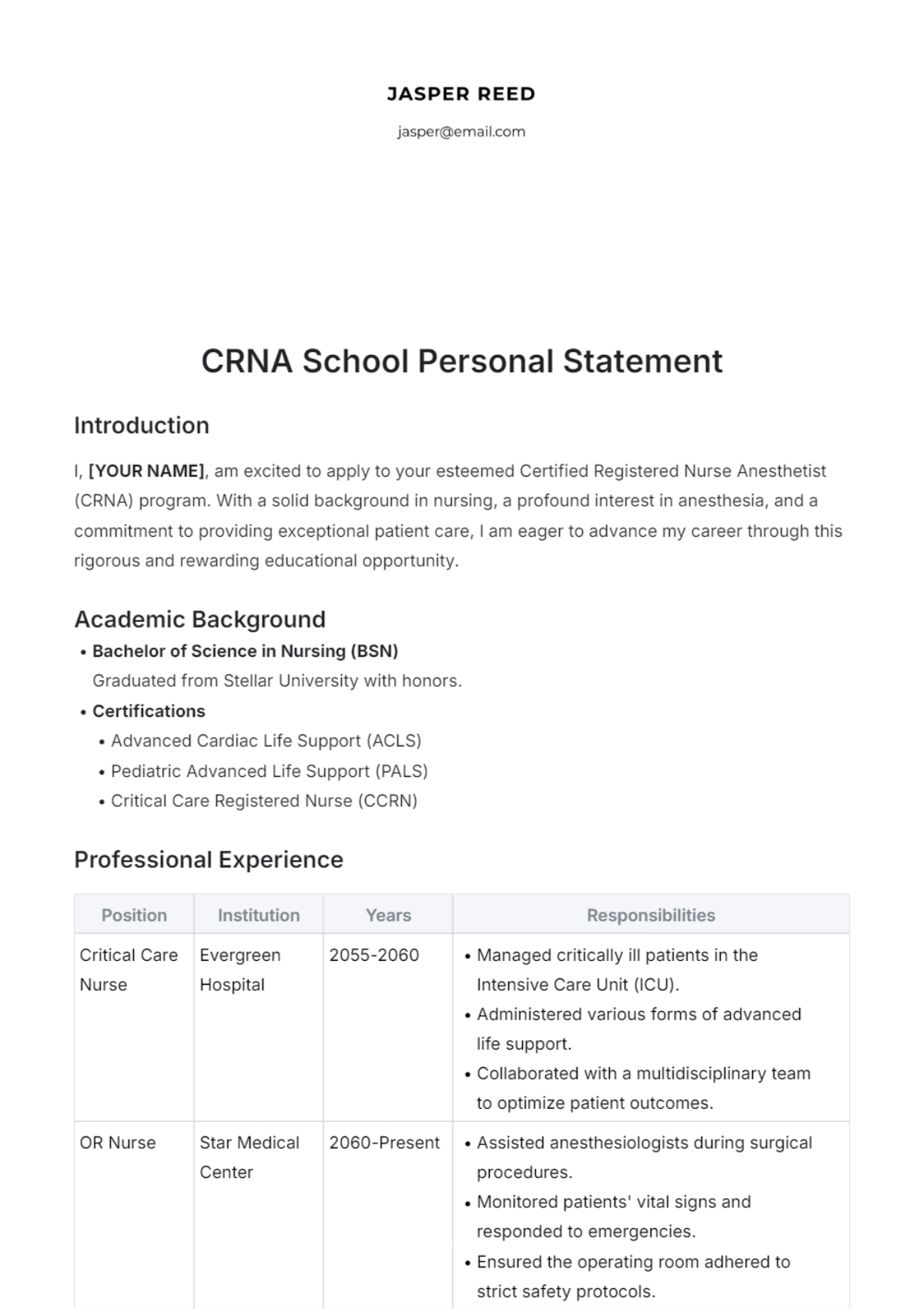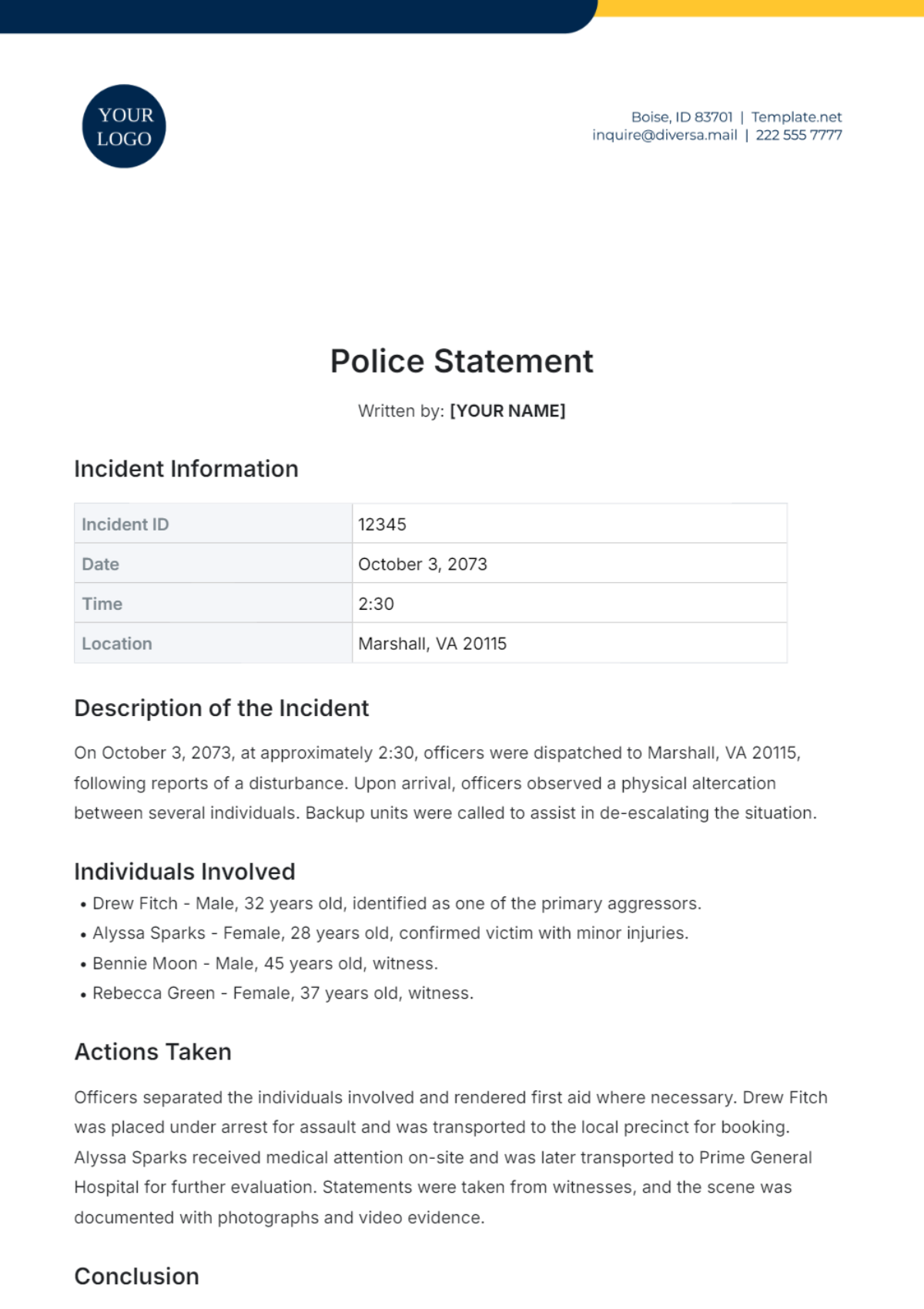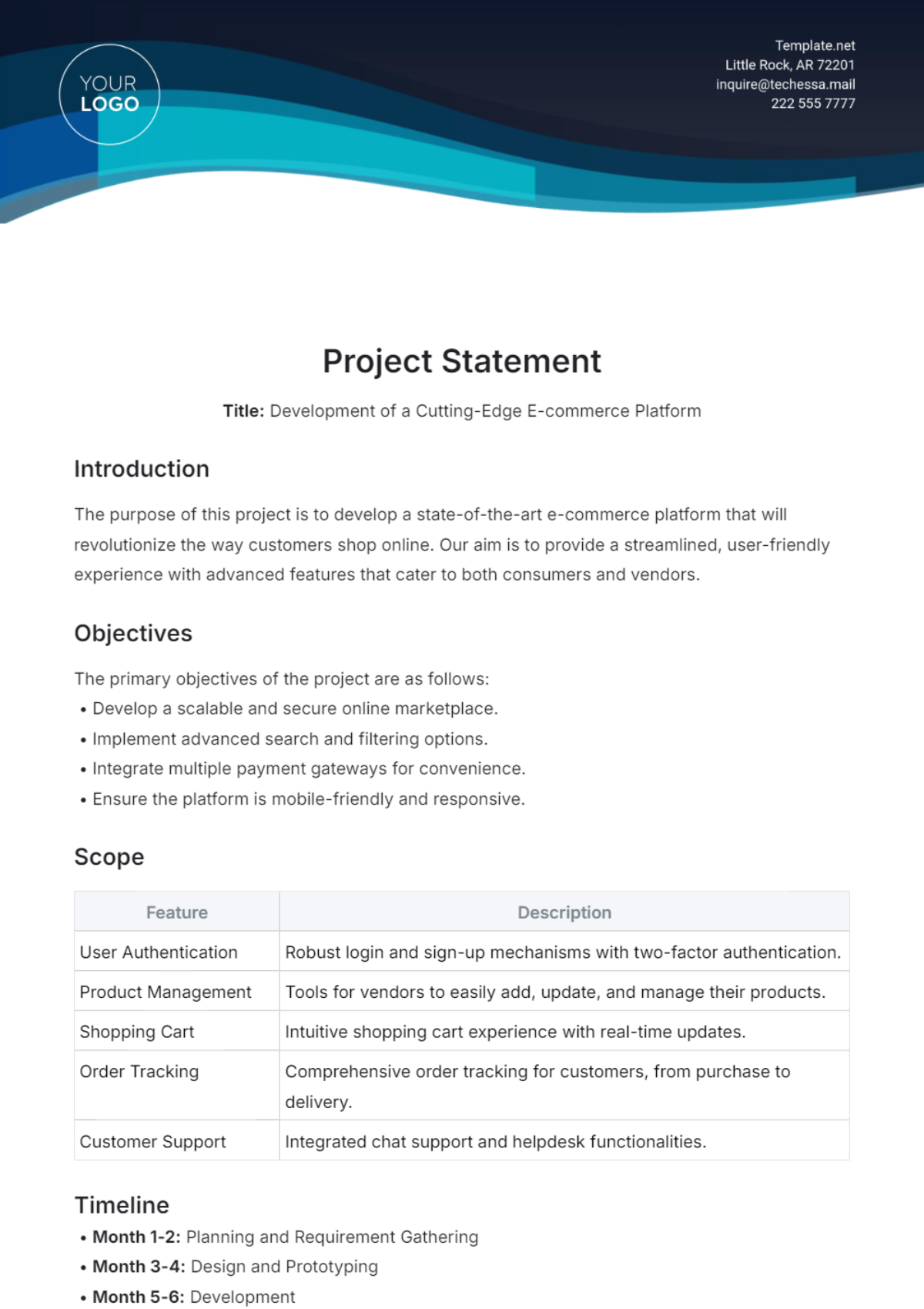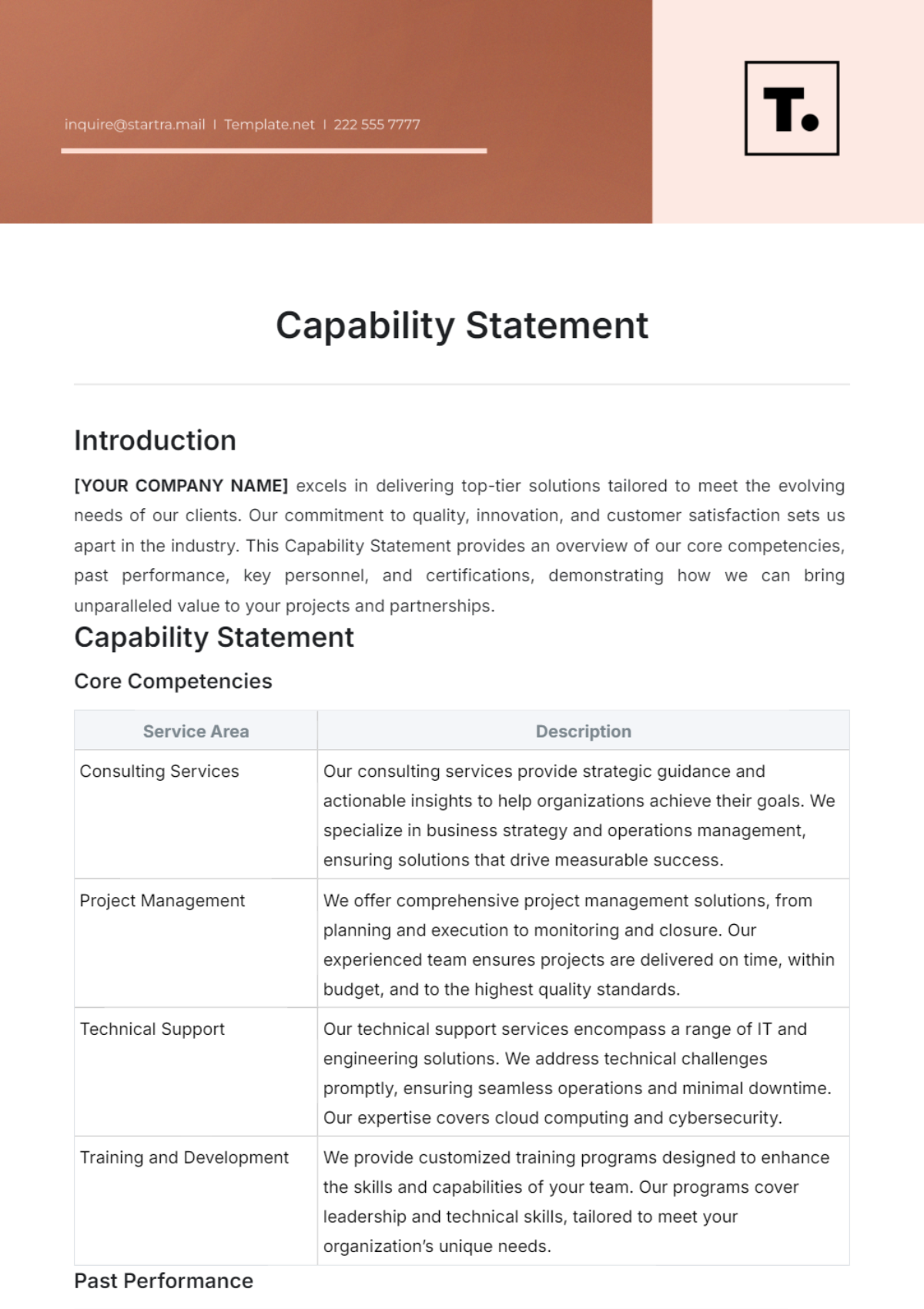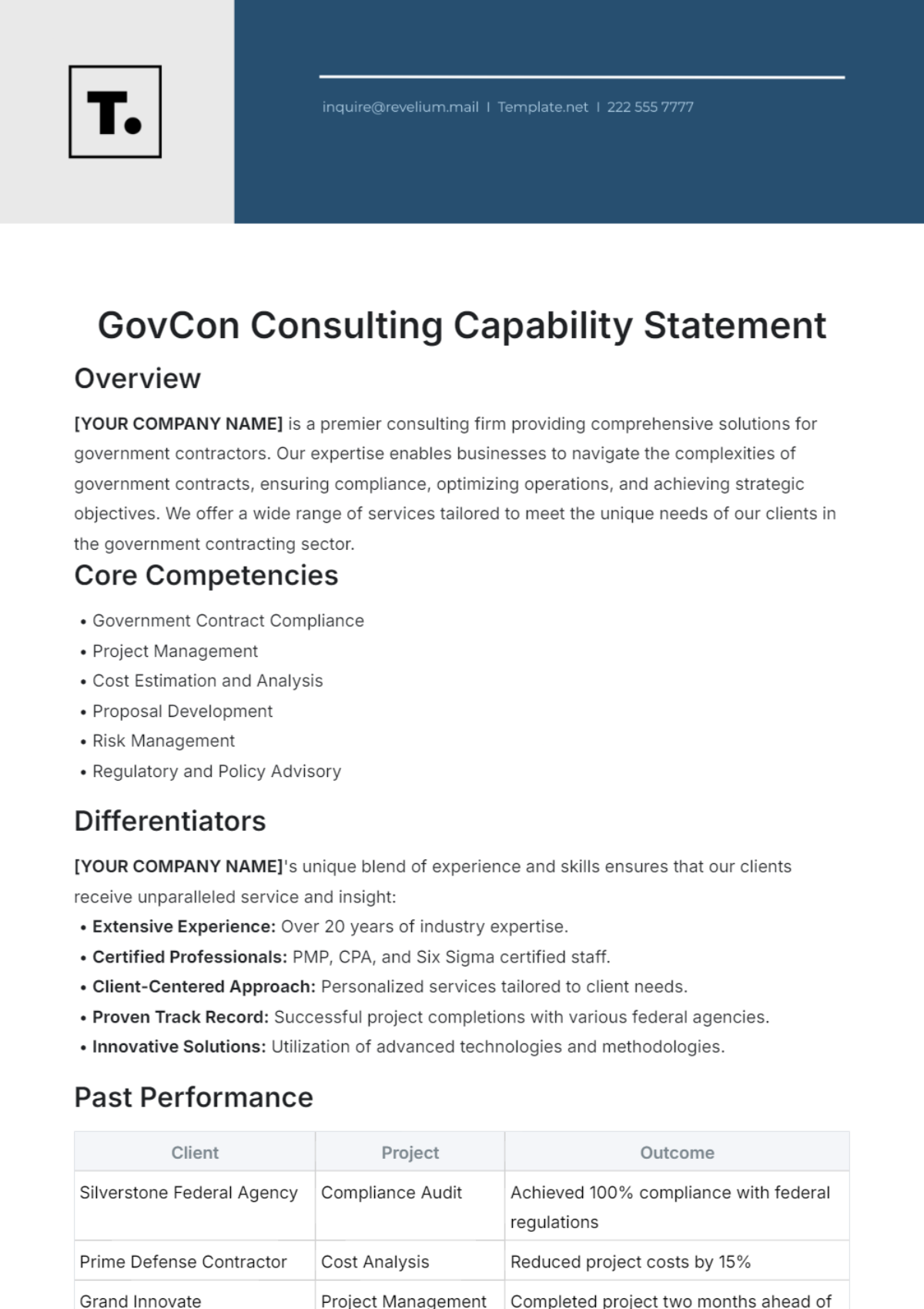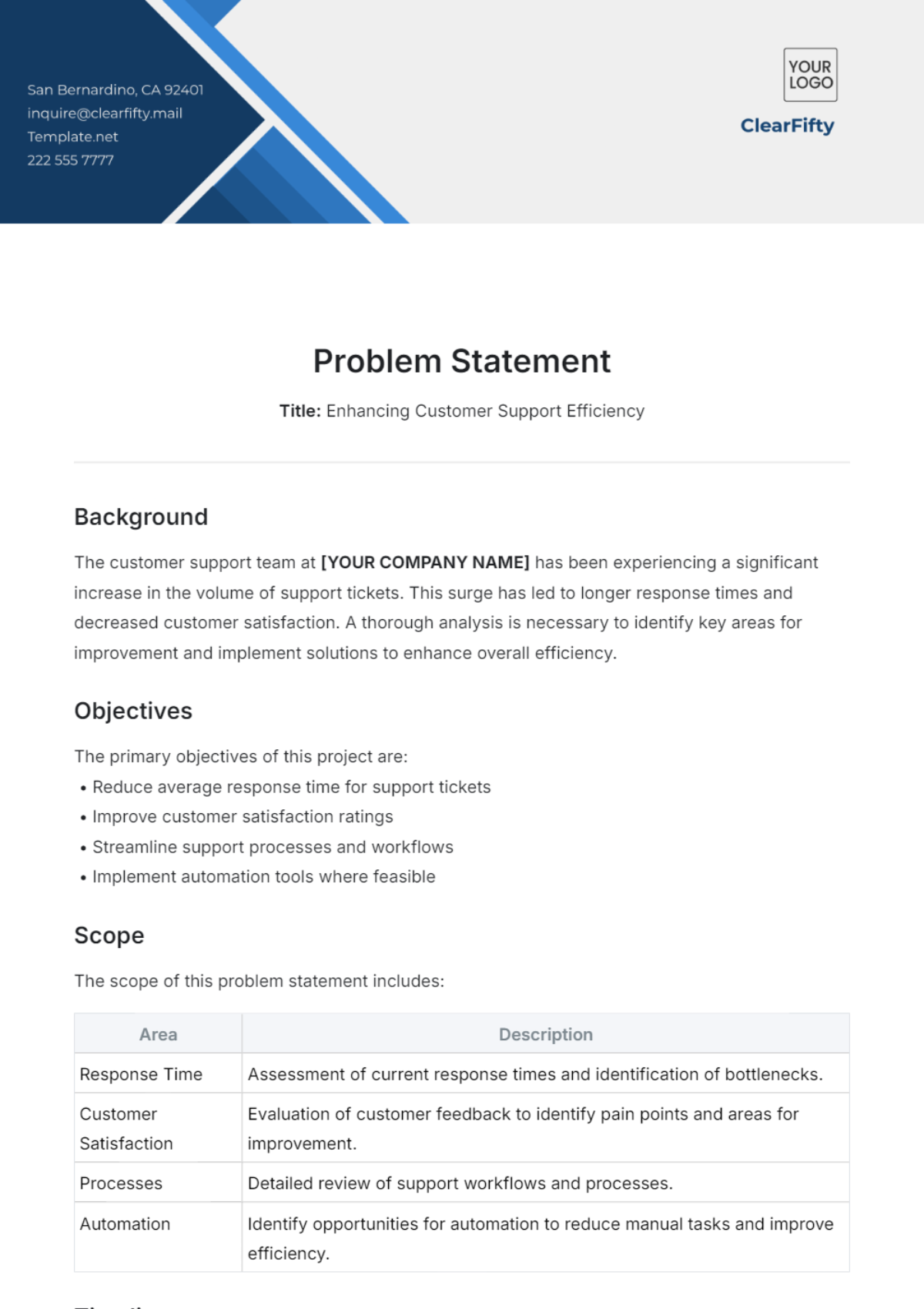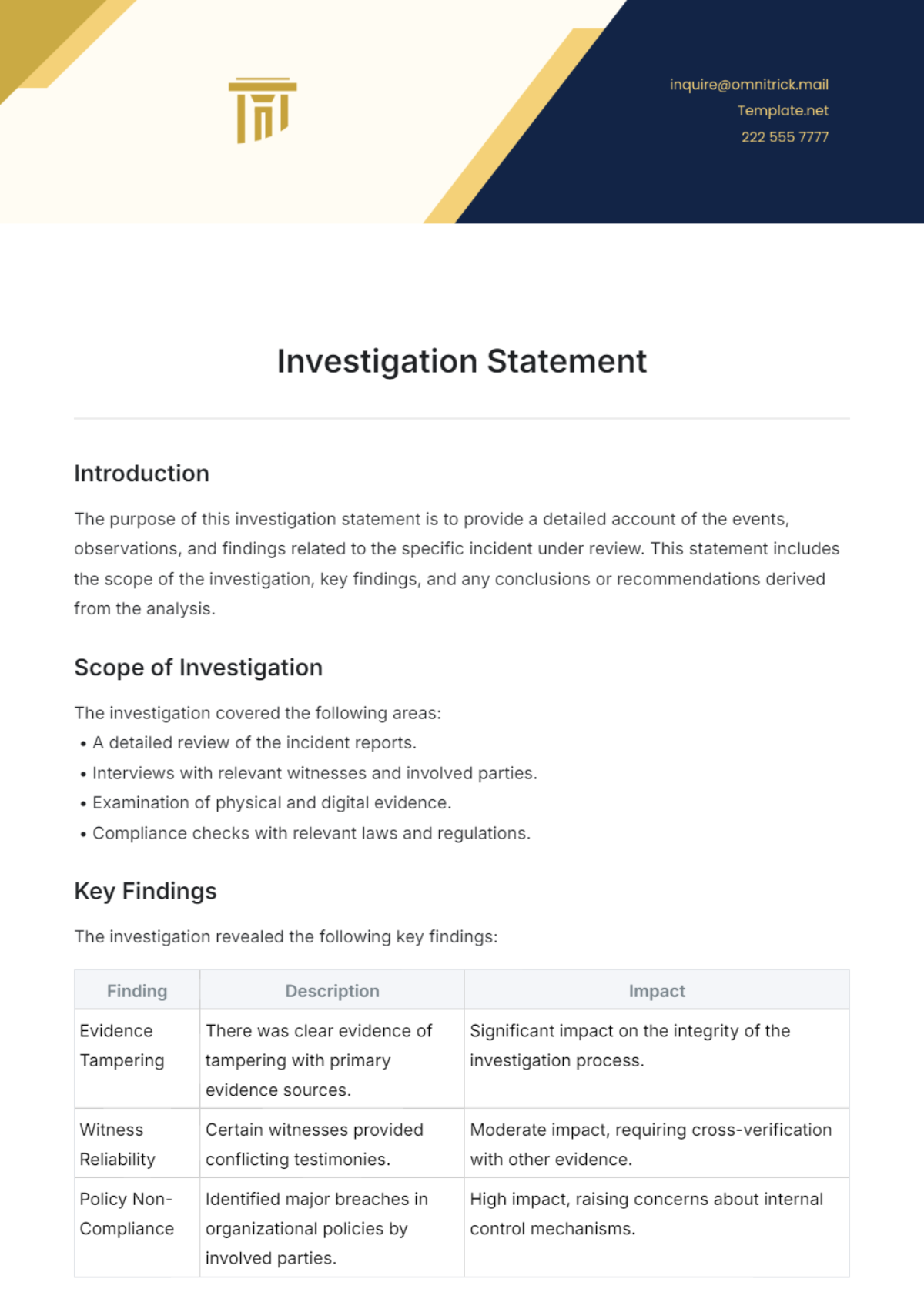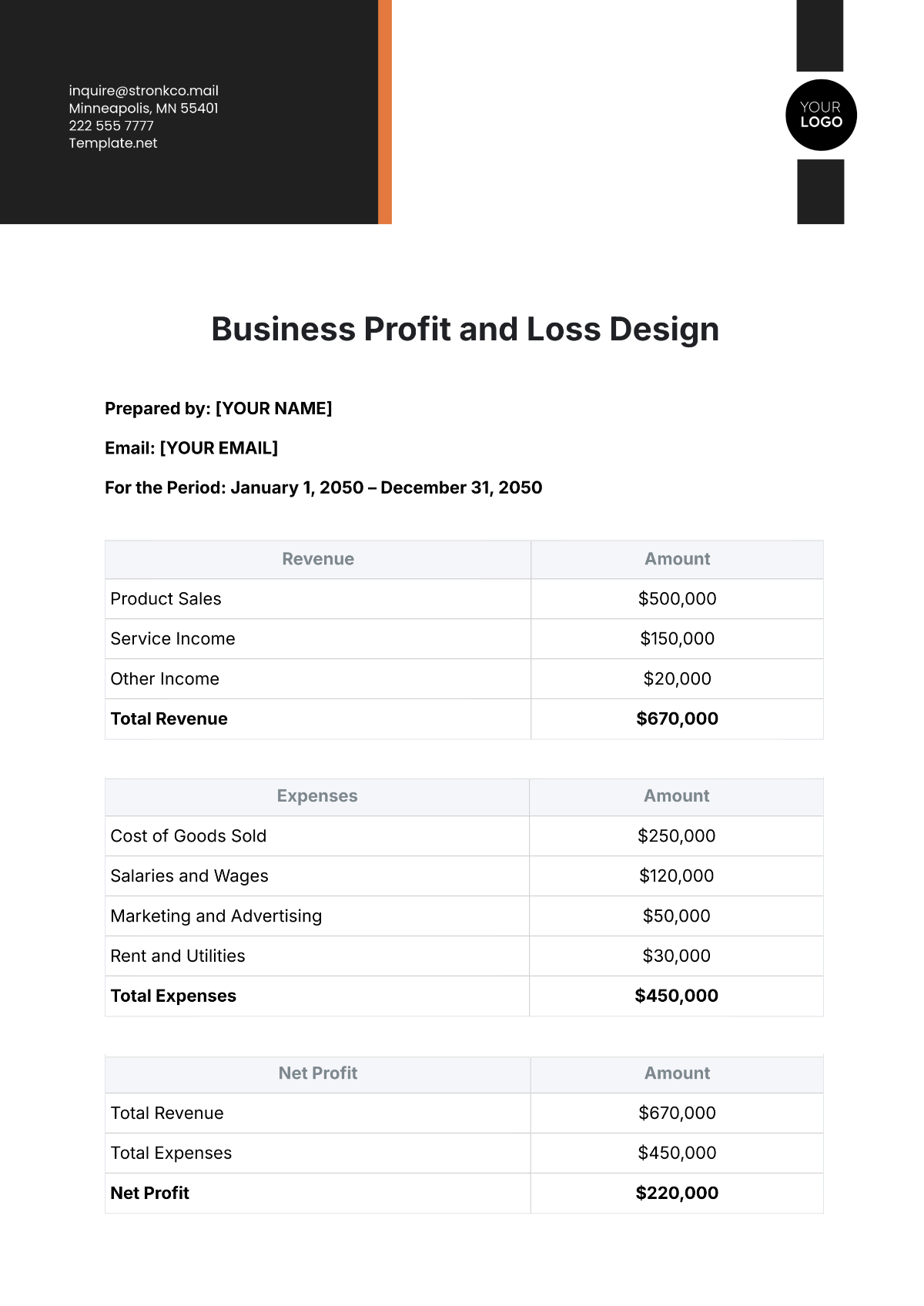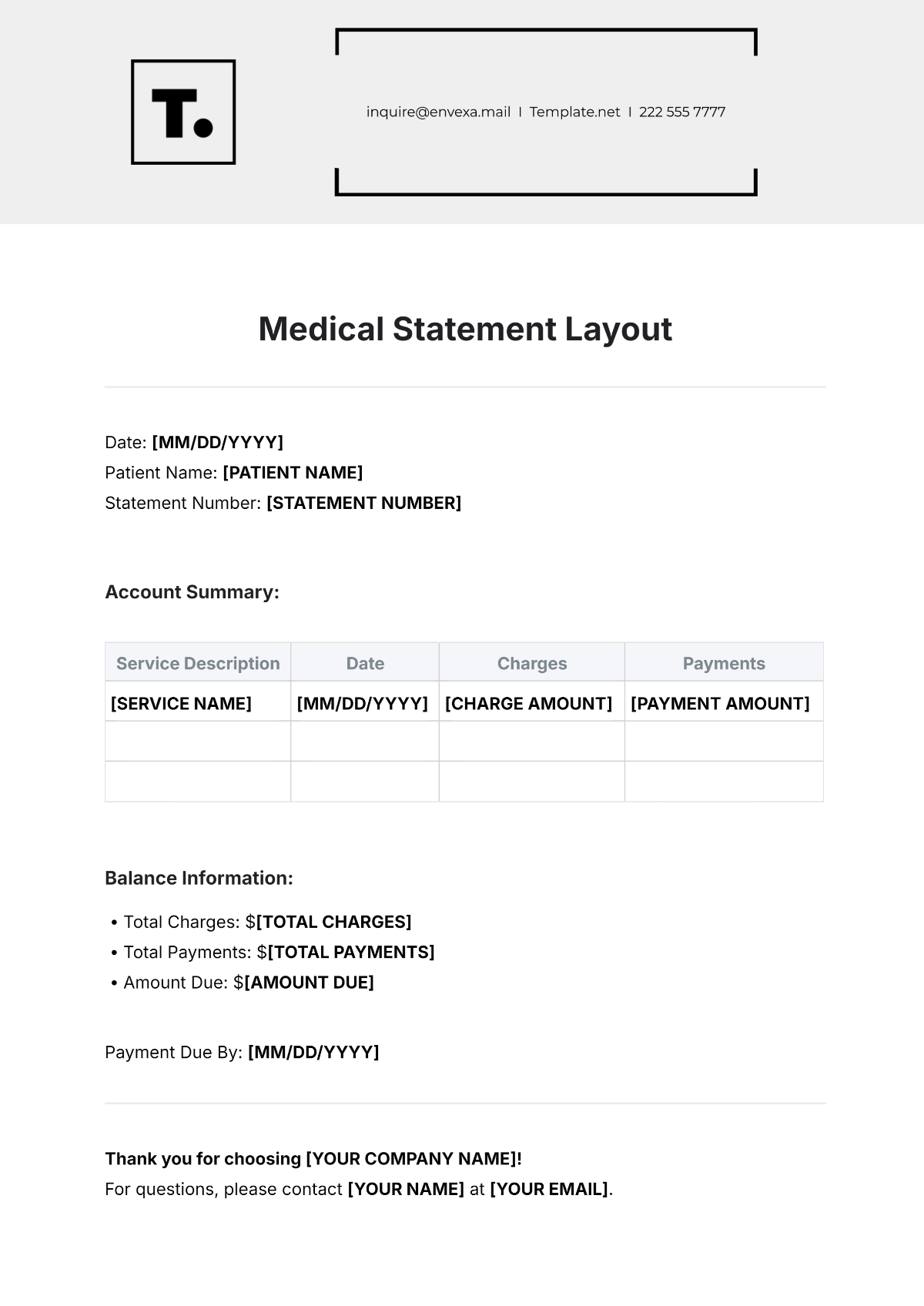Information Statement
I. Introduction
This Information Statement aims to provide updated and factual details regarding the specific topics outlined herein. It is designed to aid [Recipient Group/Individual], hereafter referred to as the “Recipient,” in making informed decisions based on the latest developments.
II. Subject Overview
The integration of Artificial Intelligence (AI) in healthcare systems represents a transformative shift, leveraging advanced algorithms to enhance medical diagnostics, treatment planning, and patient care. While promising significant improvements in efficiency and accuracy, challenges such as data privacy concerns, algorithm bias, and regulatory compliance remain paramount. Ultimately, the widespread adoption of AI technologies holds the potential to revolutionize healthcare delivery, improving outcomes and accessibility for patients worldwide.
III. Objectives
The main goals that this document aims to achieve are:
To inform the Recipient about recent updates associated with AI integration in healthcare.
To provide a detailed overview of impacts or changes resulting from these developments.
To delineate anticipated steps going forward.
IV. Detailed Information
The following section elaborates on the key topics previously introduced, ensuring a comprehensive understanding of each element:
A. Background and Current Status
Artificial Intelligence in healthcare has witnessed exponential growth since its inception. As of 2050, AI algorithms are extensively utilized in medical diagnosis, personalized treatment plans, and predictive analytics. Recent advancements include the development of AI-powered robotic surgery systems and virtual health assistants, enhancing patient care and operational efficiency.
B. Implications and Consequences
The integration of AI in healthcare presents profound implications across various domains. Economically, it reduces healthcare costs by optimizing resource allocation and minimizing medical errors. Socially, it improves access to quality healthcare, especially in underserved regions, and fosters patient empowerment through personalized health management. However, ethical and legal considerations regarding data privacy, algorithm bias, and accountability remain critical concerns.
C. Future Projections
Looking ahead, the future of AI in healthcare is promising yet complex. Technological innovations such as quantum computing and neuro-symbolic AI will further augment the capabilities of medical AI systems, enabling more accurate diagnoses and treatment predictions. Moreover, the widespread adoption of AI-driven telemedicine platforms will redefine the patient-doctor relationship, making healthcare services more accessible and convenient.
V. Call to Action
Encourages the Recipient to consider the information presented and engage in further actions such as:
Exploring research papers and case studies linked within the document for deeper insights.
Initiating discussions with healthcare professionals and AI experts to explore potential collaborations or implementations.
Advocating for robust regulatory frameworks to address the ethical and legal challenges associated with AI in healthcare.
VI. Conclusion
This statement has provided comprehensive insights into the integration of AI in healthcare, aimed at enhancing knowledge and facilitating informed decision-making. We encourage the Recipient to utilize the information effectively and contact us for any further clarification or next steps.
VII. Contact Information
For further information or to discuss the contents of this statement, please contact:
Name: [Your Name]
Email: [Your Company Email]
Phone: [Your Company Number]


